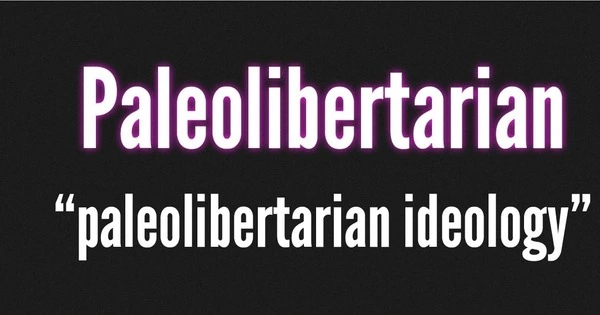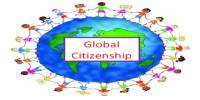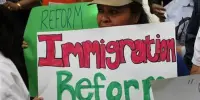Paleolibertarianism was a libertarian political activism strategy that aimed to bring together libertarians and paleoconservatives. It is a subset of libertarianism developed by anarcho-capitalist theorists Murray Rothbard and Llewellyn Rockwell that combines conservative cultural values and social philosophy with a libertarian opposition to government intervention.
Paleolibertarianism is a libertarian ideology that sees social conservatism as a necessary part of society but does not believe in (federal) government intervention to enforce it. It was developed in the American political context after the Cold War by anarcho-capitalist theorists Murray Rothbard and Lew Rockwell. From 1989 to 1995, they attempted to communicate libertarian notions of opposition to government intervention through messages that were understandable to working and middle-class people at the time.
Paleolibertarianism is a political philosophy and right-libertarianism variant developed by anarcho-capitalist theorists Murray Rothbard and Lew Rockwell that combines traditional conservative cultural values and social philosophy with a libertarian opposition to government intervention. It is the application of Libertarianism to demonstrate traditional values. People can peacefully associate with traditionalists and live in societies that prohibit progressivism by utilizing private property rights and freedom of association. Has issues with the far right and those who believe in domestic abuse.
This strategy, known as right-wing populism, aimed to radicalize citizens against the state. The name they chose for this type of activism was meant to evoke the origins of modern libertarianism, hence the prefix paleo. That founding movement was American classical liberalism, which shared the Old Right’s anti-war and anti-New Deal sentiments in the first half of the twentieth century.
The paleolibertarian strategy was expected to move libertarian movement away from the influence of public policy libertarian organizations based in Washington, D.C., who were accused of giving up communicating the complete libertarian message while adopting the political and cultural values of the U.S. capital to gain acceptance among the political elite, and to move American right-wing politics away from the neoconservative movement and its promotion of a U.S. foreign policy usually identified as imperialist by libertarian thinkers.
Although paleolibertarians disagree with many other libertarians on social issues, they agree that the government should not impose these values. For example, while many libertarians support homosexual “marriage,” paleolibertarians do not. However, regardless of whether they personally hold anti-homosexual values, both groups believe that the government should not enforce them. Instead, they advocate for homosexual “marriage” or, in some cases, marriage privatization. Many paleolibertarians support life, but the majority of them believe the government should not intervene.
















